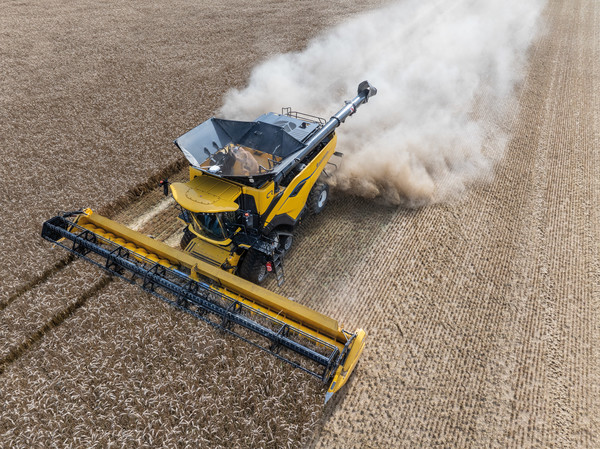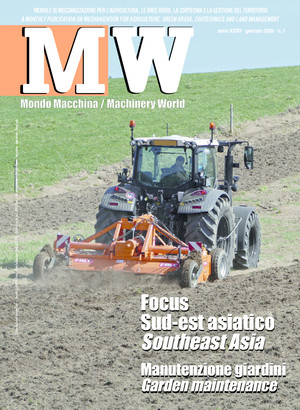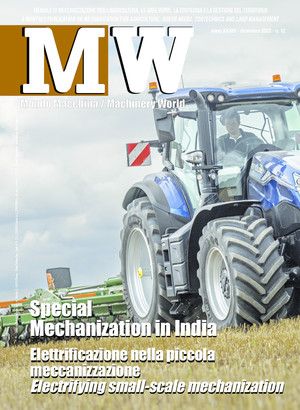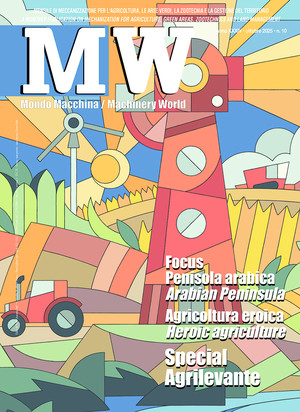
Agriculture: "supply chain synergies" for the competitiveness of Made in Italy
At the FederUnacoma annual assembly, opened with a speech by Paoli Mieli, academics, agricultural representatives, and manufacturers discussed priorities and strategies for strengthening the competitiveness of Italian agriculture
The political instability the world is experiencing at this particular moment in history stems from the crisis in the geopolitical structure and global governance, such as the UN, which guided international relations in the period between the post-World War II period and the end of the Cold War. The ongoing conflicts indicate that the global system is seeking a new balance, but even in such a complex scenario it is legitimate to be optimistic. This was the message delivered by Paolo Mieli, historian and journalist, former editor of the Corriere della Sera, who opened the public session of the FederUnacoma Annual Assembly, held on the afternoon of June 26, at the historic location of Palazzo Albergati (Zola Predosa, Bologna). Past historical cycles – said Paolo Mieli – teach us that, very often, turbulent periods precede significant phases of progress and development, arising from important technological leaps. This was the case, for example, in the late Middle Ages when the Hundred Years' War was followed by the Renaissance, or in the 17th century when the Thirty Years' War paved the way for the Enlightenment. It is therefore likely that beneath the ashes of current conflicts, the conditions are being created for a new phase of growth, one in which the new generations will be the architects and leading figures.
Following Mieli's introduction, a talk show moderated by Radio 24 journalist Simone Spetia on the topic of "Land, a Common Good" was held. The event featured Cristiano Fini, president of the Italian Agricultural Confederation (CIA), Nicola Gherardi, member of the Confagricoltura board, Valentino Marcattilii, international chef and owner of the San Domenico restaurant in Imola, Mariateresa Maschio, president of FederUnacoma, Giovanni Molari, Rector of the University of Bologna Alma Mater, and Ettore Prandini, president of Coldiretti. The conference focused on issues related to generational change, technological innovation, and training. The primary sector is undergoing profound transformation: satellite connections, sensors, software systems for processing data collected directly in the field, robots capable of performing agricultural operations without human intervention – said Prandini – are the proponents of a revolution that is completely changing the logic and production methods of the primary sector. The use of highly innovative systems requiring professionals with specialized skills is also a major draw for young people and can therefore foster generational turnover in agriculture. However, as the president of Coldiretti emphasized, strong synergies between agricultural entrepreneurs, universities, and agricultural machinery manufacturers are needed to develop training programs to meet the sector's new needs. In a world that is changing very quickly young people are called upon to play a fundamental role, however - Giovanni Molari stated - this requires universities to continually update their teaching and programs to keep pace with innovation processes occuring in increasingly rapid succession. The collaboration agreement signed between the University of Bologna and the agricultural machinery manufacturers' association FederUnacoma – added Molari – goes precisely in this direction. CIA President Cristiano Fini spoke of an “Italian method” of innovation. The strength of our agricultural economy and the success of Made in Italy products on global markets, Fini said, are closely linked to Italian farmers' ability to reinvent themselves while fully respecting the tradition of quality and excellence that has always distinguished our companies in the national primary sector.
During the conference speakers also focused on the strategic importance of next-generation systems, not only in strengthening companies' competitiveness in terms of yields and cost containment, but also in meeting the sustainability requirements that are essential today to combat climate change and ensure optimal use of resources. Nicola Gherardi spoke on the topic, pointing out that Italian farms must comply with the stringent environmental standards set by the Green Deal—including, for example, limits on pesticide use—and how these standards can negatively impact productivity and the ability to face increasingly fierce competition. At present, technology provides the means and best solutions to increase the competitiveness of the Italian agricultural economy, but—Gherardi explained, echoing the talking points of the other speakers—there is a lack of professionals capable of fully seizing the opportunities offered by Industry 4.0 systems, especially when it comes to processing the vast amounts of data collected by agricultural machinery during field work. From increasing production yields to sustainability, to generational turnover and the training of new professionals, agriculture faces significant challenges, which—added FederUnacoma President Mariateresa Maschio—can only be met through close collaboration between all stakeholders in the supply chain, public decision-makers, universities, agricultural professionals, and agricultural machinery manufacturers. The statements made by chef Valentino Marcattilii, who concluded the conference proceedings, were of great interest. In his speech, Marcattilii retraced the most significant stages of his career, from his beginnings at the Imola restaurant to the great success he has experienced in New York, making a name for himself by offering a typically Italian high-end product. The FederUnacoma Annual Assembly continued into the afternoon with a concert by the Ensemble Symphony Orchestra dedicated to the repertoire of Ennio Morricone and celebrations for the Federation's 80th anniversary.








